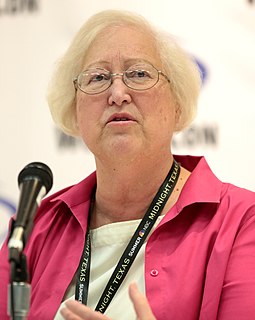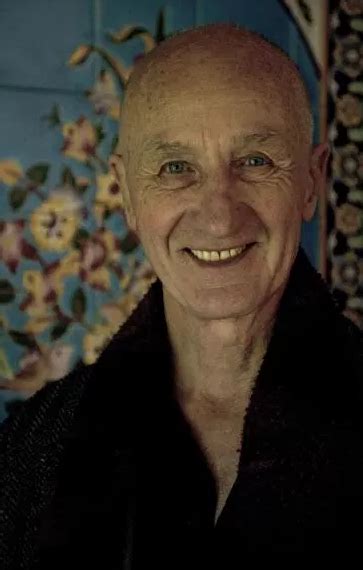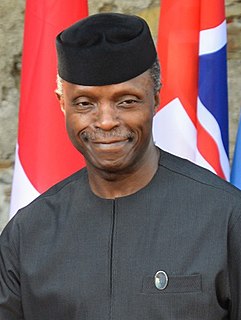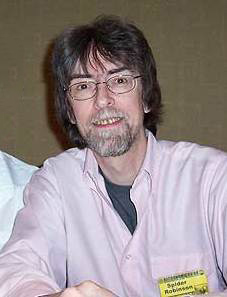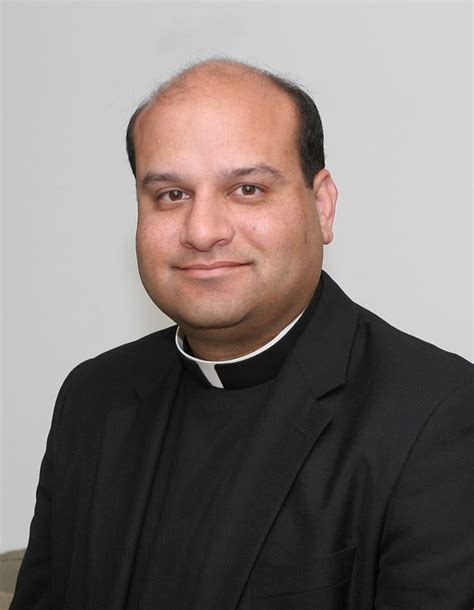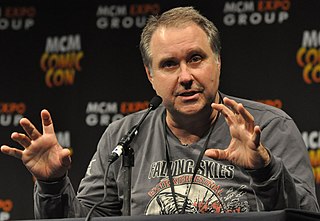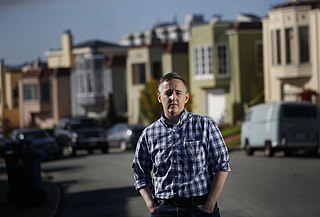Top 400 Existential Quotes & Sayings - Page 6
Explore popular Existential quotes.
Last updated on April 21, 2025.
The most fundamental challenge of the anthropocene concerns agency. For those who lived the Enlightenment dream (always a minority but an influential one), agency was taken for granted. There were existential threats to agency (e.g., determinism) but philosophy mobilized to refute these threats (e.g., by defending libertarianism) or to defuse them (e.g., by showing that they were compatible with agency).
Jesus clearly believed in the reality of Satan and other principalities and powers. Now, I have very compelling historical, philosophical, and existential reasons for concluding that Jesus is Lord, and if I confess him to be Lord, I don't see how I can consider myself in a position to ever correct his theology, especially about such a foundational theological matter!
You can't win enough, you can't have enough money, you can't succeed enough. There is not enough. The only thing that will ever satiate that existential thirst is love. And I just remember that day I made the shift from wanting to be a winner to wanting to have the most powerful, deep, and beautiful relationships I could possibly have.
I seem to have come out of the womb with existential angst and wasn't a happy kid, so I've been on a lifelong search trying to discover how to live the best life possible. I committed my life to doing what I could to experience greater happiness, which ultimately led me to write a book on the subject called Happy for No Reason.
As a physician who was smoking a pack of cigarettes a day, getting drunk on weekends, stressed out about having 35 patients in the hospital, and not being able to help either them or myself, I had my existential crisis way before I met Maharishi. I did meet him and he was an influence, but I met many other people as well.
What I worry about ultimately is that when we're stripped of our privacy, when we're stripped of free will, when we start to merge with machines in a more robust way, at some point, we'll cease to be identifiably human. And therefore, I think our humanity is, in some ways, the thing that's under existential threat.
This is my number one priority. I've got a lot of things on my plate. But my top priority is to defeat ISIL and to eliminate the scourge of this barbaric terrorism that's been taking place around the world. Groups like ISIL can't destroy us. They can't defeat us. They don't produce anything. They're not an existential threat to us. It is very important for us to not respond with fear.
In a study we did of bereavement, we found that rather impressive numbers of widows and widowers had not simply gone back to their pre-loss functioning, but grown. This was due to a kind of increased existential awareness that resulted from this confrontation with the death of another. And I think it brought them in touch with their own death, so they began to experience a kind of preciousness to life that comes with an experience of its transiency.
Bananas are great, as I believe them to be the only known cure for existential dread. Also, Mother Teresa said that in India, a woman dying in the street will share her banana with anyone who needs it, whereas in America, people amass and hoard as many bananas as they can to sell for an exorbitant profit. So half of them go bad, anyway.
Funny as hell, searingly honest, and urgently real, Sam Pink's Rontel puts to shame most modern fiction. His writing perfectly captures the bizarre parade that is Chicago, with all its gloriously odd and wonderful people. This book possesses both the nerve of Nelson Algren and the existential comedy of Albert Camus.
The entire range of human experience is present in a church choir, including, but not restricted to jealousy, revenge, horror, pride, incompetence (the tenors have never been on the right note in the entire history of church choirs, and the basses have never been on the right page), wrath, lust and existential despair.
There is a core of loneliness. It's partly existential. Secondly, I was raised a loner. My parents were not there. My father was asked to leave because he couldn't metabolize ethanol. Actually, my mother ran away with us when I was 2 months old and my brother was 5. Real dramatic stuff: down the fire escape, through backyards. So, I sort of raised myself. I was alone a lot and I invented myself - I lived through the radio and through my imagination.
Like art, love, and pornography, noir is hard to define, but you know it when you see it. For the purposes of the book and my longtime working understanding and definition of it, noir stories are bleak, existential, alienated, pessimistic tales about losers--people who are so morally challenged that they cannot help but bring about their own ruin.
The internet takes a lot of the anxiety of life away. It's a kind of deity. You're never lonely. You're always distracted. If you spend enough time on it, there's not really that nagging sensation of existential despair; it erases it very effectively. And it's monolithic. And thanks to it, we've got the ways to linger there after death - your blog exists afterwards, your e-mail exists afterwards.
Struggle has a natural place in our life, but the fight or flight syndrome is often false struggle. There are times for that but we can have that reaction in areas of our life where it's not successful. Areas that concern existential issues or qualities of life - like meaning or purpose or love. These things actually come to us more as we let go of struggling to achieve them.
If literature is to transcend political interference and return to being a testimony of man and his existential predicament, it needs first to break away from ideology. To be without "isms," is to return to the individual and to return to viewing the world through the eyes of the writer, an individual who relies on his own perceptions and does not act as a spokesman for the people. The people already have rulers and election campaigners speaking in their name.
But almost always, during the initial stage of the struggle, the oppressed, instead of striving for liberation, tend themselves to become oppressors, or sub oppressors. The very structure of their thought has been conditioned by the contradiction of the concrete, existential situation by which they were shaped. Their ideal is to be men; but for them to be men is to be oppressors
I want to say that this business of corruption and the fight against corruption is a very serious matter, and sometimes I'm amazed that very little is being said outside of those who are saying so in government. It's an existential matter. I don't know whether it is possible to overemphasize the point, but I think it's a very crucial matter.
All of the action, and the Wild West West fun, crazy, HBO stuff is in there and it's all amazing, but what separates the show [ Westworld] is that it's an existential drama. It's an intellectual nightmare. It is all very much based in reality. A lot of the technologies that we're exploring is stuff that we're working at, right now. All of this is not that far away. It's taking a look at humanity and the state that we're in now and what would happen, if we kept on going the way that we're going and we created this artificial intelligence.
When machines fail, when technology fails, when the conventional religion fails, people have got to have something. Even a zombin lurching through the night can seem pretty cheerful compared to the existential comedy/horror of the ozone layer dissolving under the combined assult of a million flurocarbon spray cans of deoderant." - The Mist
I guess I worry about weird existential things, like how do we spend our final act. This is a very emotional question. I can't answer it without crying. I think, You're 56 years old, what did you do? You raised two good kids. What am I going to do now that is as meaningful as that? I don't know the answer yet.
Philosophy would do well to desist from issuing any further injunctions about the need to re-establish the meaningfulness of existence, the purposefulness of life, or mend the shattered concord between man and nature. It should strive to be more than a sop to the pathetic twinge of human self-esteem. Nihilism is not an existential quandary but a speculative opportunity.
This is what it is to be human: to see the essential existential futility of all action, all striving -- and to act, to strive. This is what it is to be human: to reach forever beyond your grasp. This is what it is to be human: to live forever or die trying. This is what it is to be human: to perpetually ask the unanswerable questions, in the hope that the asking of them will somehow hasten the day when they will be answered. This is what it is to be human: to strive in the face of the certainty of failure. This is what it is to be human: to persist.
For every Book of Job, there's a Book of Leviticus, featuring some of the most boring prose ever written. But if you were stranded on a desert island, what book would better reward long study? And has there ever been a more beautiful distillation of existential philosophy than the Book of Ecclesiastes?
Sci-Fi is the genre that explored both possibilities: the end of our existential crisis and the end of our existence. My novel, The 5th Wave, explores the latter scenario, because, frankly, I believe it represents the likeliest outcome of an extraterrestrial encounter. In short, if they're out there, we better hope they never find us.
I think Bergman's films have eternal relevance, because they deal with the difficulty of personal relationships and lack of communication between people and religious aspirations and mortality, existential themes that will be relevant a thousand years from now. When many of the things that are successful and trendy today will have been long relegated to musty-looking antiques, his stuff will still be great.
At first when I heard about climate change, I was a climate denier. I didn't think it was happening. Because if there really was an existential crisis like that, that would threaten our civilisation, we wouldn't be focusing on anything else. That would be our first priority. So I didn't understand how that added up.
Sci-Fi is the genre that explored both possibilities: the end of our existential crisis and the end of our existence. My novel, 'The 5th Wave,' explores the latter scenario, because, frankly, I believe it represents the likeliest outcome of an extraterrestrial encounter. In short, if they're out there, we better hope they never find us.
Being gay, you're kind of forced to ask, I suppose, very existential questions from a very, very early age. Your identity becomes so important to you because you're trying to understand it, and, I think, from the age of, like, 9, you're being forced to ask questions... that other kids maybe don't have to ask.
Climate change is often the first thing I think about it in the morning, and the last thing I think about before I go to bed. It is not something that escapes that my mind, so inevitably, I had to kind of express that existential terror through art and music. My hope is to channel that confusion and energy into something good.
In my work, it's simultaneously realities, instead of parallel. Simultaneous avoids the problem of alternate reality. In parallel reality, there's always a hierarchy, and there doesn't necessarily have to be a hierarchy. When you're in a palace like Blenheim, you're supposed to be in awe - why not be in awe of something different than the stuff they're showing you? It's about finding your own existential place.
I believed Afghanistan was always going to be hard. It's the fifth poorest country in the world. And when you fly over it, you realize that there's not much there. And, of course, it has the problem, too, of being on that border with Pakistan in basically an ungoverned region that has given the terrorists a staging ground. So it's a very difficult place. But I do believe that the mission there can succeed if success is defined as helping the Afghans to prevent the Taliban from being an existential threat to the Afghan government.
There's so much going on in Andrei [Bolkonsky]. He's wrangling with these big existential conundrums, and he tries out different routes to fulfillment. He tries falling in love, that doesn't work. He goes to war and searches for military glory, that doesn't work. He does the quiet life of a farmer. He's always active. That's what I loved about him, he's always looking, searching. He's really inquisitive.
My reading of the threat from Iran is that if Iran acquires nuclear weapons, it is an existential threat to the State of Israel and to other countries in the region because the other countries in the region will feel compelling requirement to acquire nuclear weapons as well. Now we cannot a second Holocaust.
Existential psychotherapy is the movement which, although standing on one side on the scientific analysis owed chiefly to the genius of Freud , also brings back into the picture the understanding of man on the deeper and broader level man as the being who is human. It is based on the assumption that it is possible to have a science of man which does not fragmentize man and destroy his humanity at the same moment as it studies him. It unites science and ontology .
Profitability, growth, and safeguards against existential risks are crucial to strengthening a company's long-term prospects. But if these three factors constitute a company's 'hard power,' firms also need 'soft power': public trust and acceptance, won by fulfilling a company's social responsibility.
Yoga is existential, experiential, experimental. No belief is required, no faith is needed - only courage to experience. And that's what's lacking. You can believe easily because in belief you are not going to be transformed. Belief is something added to you, something superficial. Your being is not changed; you are not passing through some mutation.
We, the great American nation, decided that we've got 138 military bases around the world and we've now figured out that we can buy these drones from the Israelis, and we've decided that the way to proceed is to use this new technology to go and kill anybody that we don't like or who disagrees with us or who we might perceive as making an existential threat.
I think that obviously the quest for purpose, or meaning, or understanding to existence is something that I always think about, always deal with. I guess everybody does - that existential crisis of human condition. It's nothing new. But I'd love to come across something that really made me believe in something.
What is the hope that can give meaning to life? Without some form of hope, the Holy Father argues that life becomes tedious and potentially burdersome, even if it is marked by material influence and technical progress. The person without hope finds himself in an existential difficulty: For what enduring purpose am I clinging to this life that I love and do not want to lose?
I went to school, and I remember that you had to do these tests to find out what set you're in - how clever you are. I put down "Kit Harington," and they looked at me like I was completely stupid, and they said, "No, you're Christopher Harington, I'm afraid." It was only then I learnt my actual name. That was kind of a bizarre existential crisis for an 11-year-old to have, but in the end I always stuck with Kit, because I felt that's who I was. I'm not really a "Chris."
I went through this kind of existential crisis. I was going through a breakup; I tore my ACL and my meniscus and had to have surgery, so I was out of school for a few months. Then my computer crashed, which was, like, my whole life. So when I came out of it, I started making music that, I think, was the most true to me.
Our approach to existential risks cannot be one of trial-and-error. There is no opportunity to learn from errors. The reactive approach - see what happens, limit damages, and learn from experience - is unworkable. Rather, we must take a proactive approach. This requires foresight to anticipate new types of threats and a willingness to take decisive preventive action and to bear the costs (moral and economic) of such actions.
To emotionally accept impending disaster, to attain the gut-level understanding that the power elite will not respond rationally to the devastation of the ecosystem, is as difficult to accept as our own mortality. The most daunting existential struggle of our time is to ingest this awful truth-intellect ually and emotionally-and continue to resist the forces that are destroying us.
And, what we've allowed ourselves to become - and this is part of Chris' ideas - is complacent, in allowing our lives to be taken over, or at least in allowing that kind of scrutiny into our lives. We've given up a little bit of that, and this is the existential nightmare of all of that. What happens when you suddenly find out that people have been watching you, with a purpose?
Because of social pressure, individualism is rejected by most people in favor of conformity. Thus the individual relies mainly upon the actions of others and neglects the meaning of his own personal life. Hence he sees his own life as meaningless and falls into the “existential vacuum” feeling inner void. Progressive automation causes increasing alcoholism, juvenile delinquency, and suicide.
The desire to live life to its fullest, to acquire more knowledge, to abandon the economic treadmill, are all typical reactions to these experiences in altered states of consciousness. The previous fear of death is typically quelled. If the individual generally remains thereafter in the existential state of awareness, the deep internal feeling of eternity is quite profound and unshakable.
One thing I'm super aware of in my music when I'm writing is: 'Am I overcomplicating this?' I'll write a song about some deep existential quandary and explore all these dumb thought waves, and then think 'Is it effective to say that? Or is it effective to say one simple thing that communicates the feeling better?'
I don't think Israelis are less critical of corruption than people in Italy, France or America. Israel is special in a different way. There is a daytime Israel and a nighttime Israel. The first is self-confident, pushy and passionate, like other Mediterranean lands. It is hedonistic, materialistic and almost arrogant. During the nighttime, people are terrified, people are filled with existential dreads. These fears aren't baseless.
The most important issues to address are the truly existential threats we face: climate change and nuclear war. On the former, the Republican leadership, in splendid isolation from the world, is almost unanimously dedicated to destroying the chances for decent survival; strong words, but no exaggeration. There is a great deal that can be done at the local and state level to counter their malign project.
ather than Eisenstein's fast and hard cutting, I like to hold the shot very still and for longer than we're accustomed to. For me personally as a viewer, this technique invariably causes me to have waves of emotions that I think arise from a profound form of mindful awareness and the feelings that go along with that. I am frequently brought to tears by this kind of existential cinematic technique.












